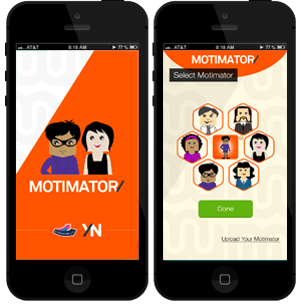What job should I do?
Finding the perfect job can seem impossible. For example, how do you even start deciding what job you should do – especially when your parents seem to have other ideas? If you find yourself thinking ‘what job should I do’, read our guide to get you set off on the right track.

What job can I do?
We’re not gonna lie, finding your ‘perfect’ job is a task and a half. And that’s without even factoring in the state of the economy. But with enough consideration and perseverance, you can find the right job for you.
There are two ways to think about what type of job you could do:
- Either you can think about what you’re like, then draw up a list of possible jobs that match your strengths and skills
- Or you can head to google and look at different job descriptions. From there you can see which job suits you best
You could always get some careers advice from a professional career adviser too. Most educational institutions have some sort of connection with one. If you’re no longer at school or university, that doesn’t mean you should completely cut ties with them. In fact, your old tutor or teacher should be able to point you in the right direction.
These methods work best if you’re properly motivated to find work, which can be difficult if you’ve been searching for a while. Read our article on how to get motivated to find a job if you’re struggling.
The personality-then-job method
To help you decide what job you should do, here are some good questions you can ask yourself to get started:
- What are my strengths and weaknesses? You want a job that fits your skill set. Start by writing a list. If you’re having trouble coming up with things, ask someone else for help — they may point out things that you were completely oblivious to.
- What is my personality like? Are you creative? Sporty? Caring? Academic? Practical? TotalJobs have a helpful list of personality profiles that’ll help you think about what you’re like, and what jobs you may be able to do.
- How am I with people? We’re not just talking about whether you’re an extrovert or an introvert – although that’s important to think about too. But ask questions like: are you good at motivating others? Caring for them? Or organising them? Remember, you don’t necessarily have to be the life of the party to be able to connect with people.
- What am I interested in? The perfect job isn’t just about what you’re good at, but what interests you too. If you find something you’re passionate about, suddenly the job becomes much more bearable or – dare we say – even enjoyable.
- What are my priorities? Do you want a job that has flexible hours? Or do you like the idea of a 9 to 5? Do you want social status? Do you want to be your own boss? Is money a factor in your decision?
Not sure where to begin? Prospects career planner can help. They’ll guide you in working out the answers to all of the above, and point you in the direction of appropriate jobs. Plus, if all else fails, you can always do a careers quiz online to help you gain a sense of direction.
Once you’ve finished an intense round of soul searching, we recommend that you draw up a list of possible jobs that fit with your personality, interests and priorities. Then it’s time to get hunting.
The job-first-personality-second method
This one’s slightly simpler since you don’t have to start by analysing your character and personality.
Go to a job website and pick out the roles that seem appealing. Then ask yourself all the above questions with these jobs in mind. Think about whether the potential job suits your personality, if you’ll enjoy the role and whether it will give you the lifestyle you want. Even if you’re not ready and/or experienced enough to go straight into that job, you’ll have started thinking about ways to get there.
The point of this exercise is to find out what jobs are out there, and to do something that’ll challenge and excite you.
“A lot of parents pressure their children to do something because it sounds good,” says Denise Taylor, a psychologist and career coach. “They want them to have a job that’ll impress their friends and that can be tough on the kid. So, to all the children out there, make sure you choose a career that suits you, not them.”
Do some research
Sometimes job websites are so full of jargon it’s hard to tell what jobs are actually being advertised. Luckily, you can use search engines to translate job titles, complicated words or acronyms like ‘B2B’.
- Ask someone who works in the industry you’re interested in. Social media, like Twitter and Linkedin, is a great way of contacting people to ask them about their careers. Having those contacts can seriously help you make your decision.
- Get work experience. If an industry looks interesting, the only way to find out if you’re suited to it is to try it out. It will look great on your CV too – even if it’s not what you choose to do eventually.
And, regardless of what industry you go into, just know that the toughest part is yet to come. You see, even if you find the answer to ‘What job should I do?’, that doesn’t necessarily mean you’ll be able to walk straight into it. So be prepared to work your way up there.
How much money do you want to earn?
‘What job can I do?’ is a very different question to ‘What job shall I do?’
Let’s face it, the cost of living is going up all the time. And, as much as we hate to admit it, having a decent amount of money does make things easier. The question is: are you willing to sacrifice pay for the perfect career – or vice-versa. Check out Kelly’s story on the topic here.
It’s important to remember that your job is not a life sentence. If you can’t decide what job you should do right now, it may be better to take any work you can. Careers are fluid these days. That means that if you start on a path you don’t like, you can choose to switch direction. Check out our article ‘I want a new career’ here for more information on changing career.
Next Steps
- Chat about this subject on our Discussion Boards.
By Nishika Melwani
Updated on 08-Apr-2022
No featured article










